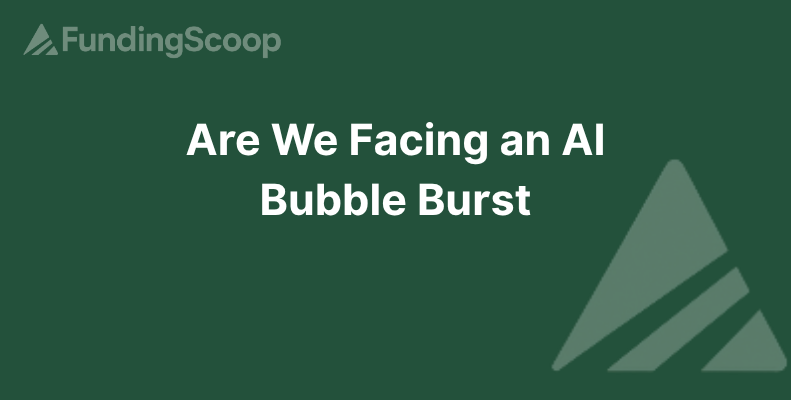
Are We Facing an AI Bubble Burst
Marcus Ashford
The tech sector is echoing past speculative bubbles with AI's inflated valuations and concerns of a potential economic crunch similar to the dot-com bust. While AI holds transformative potential, caution is advised in investments to avoid misallocation of resources. Businesses should balance AI adoption with proven strategies, and financial regulators should ensure sustainable growth. It's essential to approach AI investments prudently to shield against economic consequences as tech giants prepare to release earnings reports.
The tech sector today mirrors scenes reminiscent of past speculative periods, with whispers of an AI bubble echoing through the corridors of major financial institutions. As industry titans like Microsoft and Alphabet gear up to release their quarterly earnings, the cautious optimism surrounding AI investments is becoming increasingly shrouded by scepticism. These developments are raising a poignant question: are we on the brink of an AI-induced economic crunch?
Recent reports from the BBC highlight burgeoning concerns about AI's inflated valuations, drawing jarring parallels to the dot-com bubble. The Bank of England's recent warning about stretched AI company values amplifies these worries, suggesting that a burst may loom on the horizon (Bank of England's warning).
The notion isn't entirely unfounded. Historically, similar patterns of exuberance in nascent technologies have led to economic corrections—a sobering truth for investors and firms riding the AI wave. AI, undeniably transformative, offers revolutionary potential across industries, but its financial assessment demands caution.
My Take
I've observed that while the promise of AI is undoubtedly seductive, the market's euphoria needs a reality check. There's no denying the immense potential; however, remember the lessons etched by the dot-com era. Businesses, especially SMEs, should approach AI investments judiciously—balancing innovation with proven business strategies. The uncomfortable truth is that unchecked hype not only risks an economic fallout but also stymies genuine technological advancement as resources are misallocated.
On the flip side, AI's growth is crucial for sectors facing an automation imperative. So how does one navigate this peculiarity? By leveraging concrete case studies, embracing gradual integration rather than sweeping overhauls, and critically evaluating the financial pitches of AI-driven solutions.
The onus falls on financial regulators to lay down stringent checks that ensure sustainable growth within AI. It bolsters confidence and provides a safety net against potential economic turbulence. In my experience, a diverse funding strategy—one not weighed heavily on speculative AI projects alone—will shield businesses from potential strife.
As the tech giants unveil their financial standings, we must distinguish fantasy from feasible finance. Whether the AI bubble deflates gently or bursts dramatically remains to be seen, but caution and prudence are, without doubt, our most steadfast allies.


